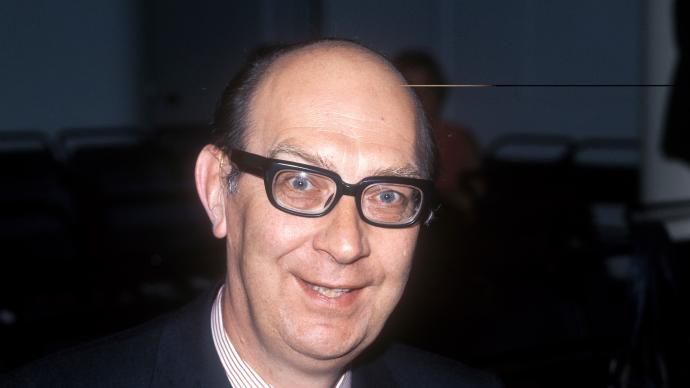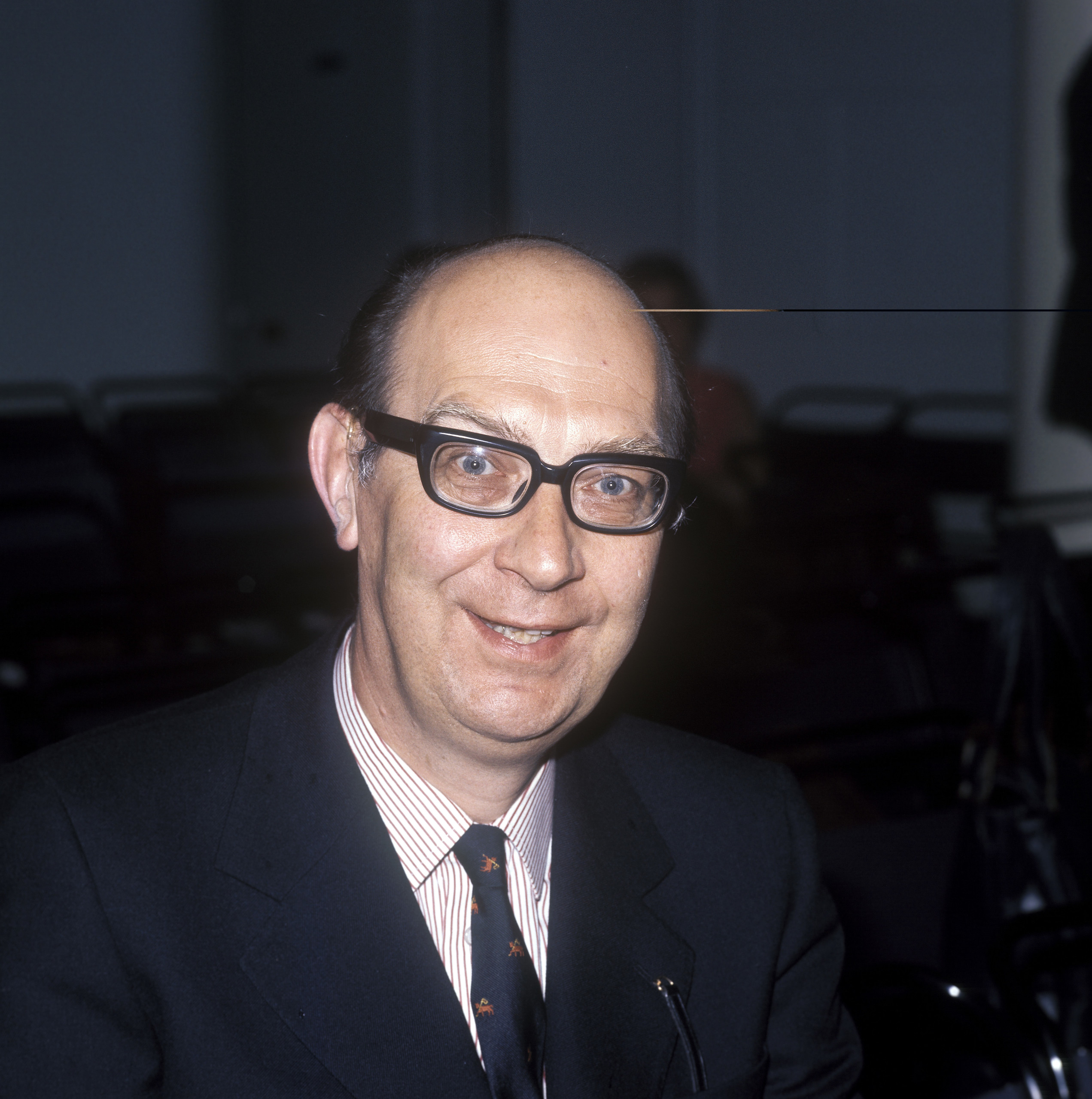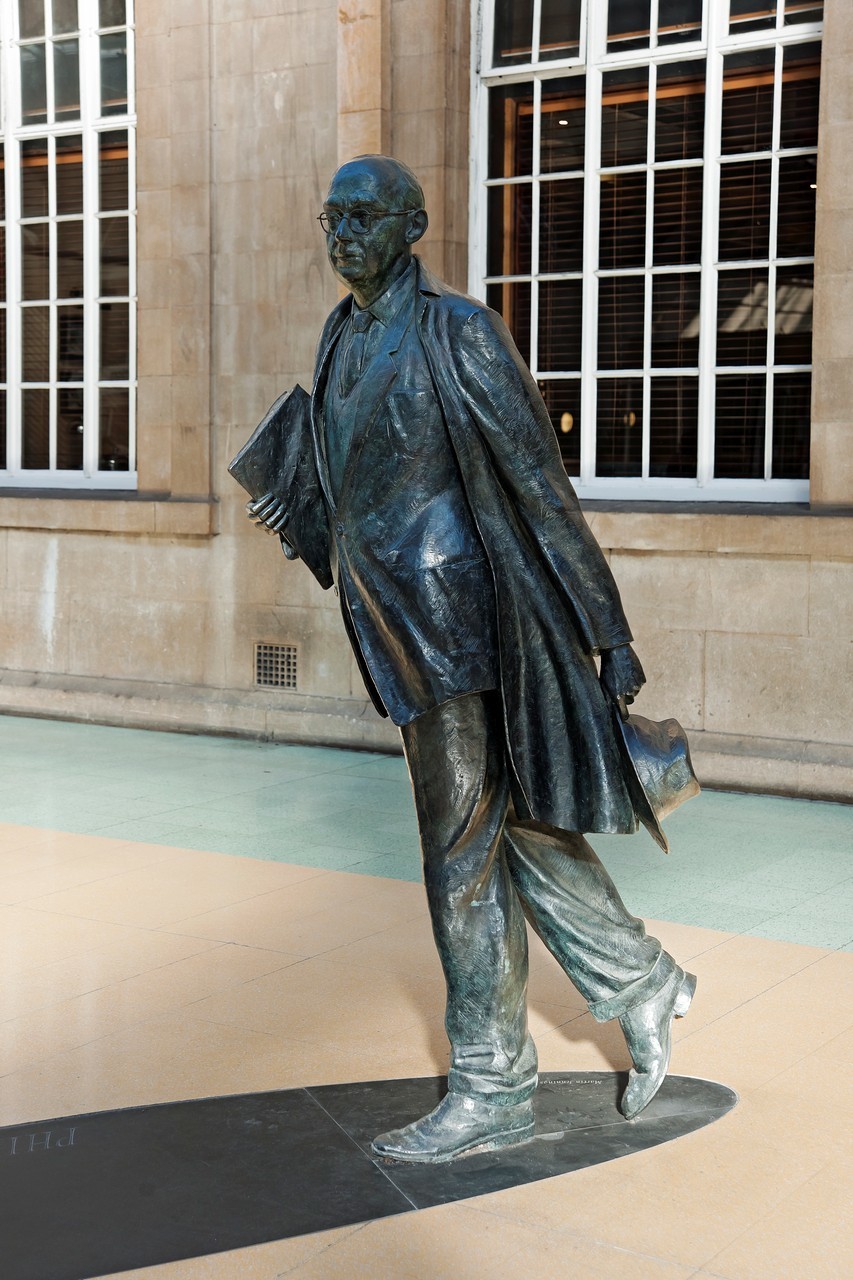

Philip Larkin. Oriental IC data map
Philip Larkin (Philip Larkin, 1922-1985), born on August 9, 1922, is a hundred years old this year. Smaller than my father and older than my mother. He is an uncompromising elder. must be respected. What do you want to say to Larkin after saying happy birthday to you? Give it a try.To this poet who is both familiar and unfamiliar, nothing seems wrong. Yes No No No ambiguity this intermediate state. It's not that I have to make it clear but that this thing is suddenly a little tiresome, like Larkin's poem.

Philip Larkin statue. Oriental IC data map
Putting you in my elbow is like a hole.("Giving Failure")
The sky turned into a dark invitation anyway.
("need")
Always too eager for the future, we
Pick up the bad habit of expecting.
("Next, Please")
It seems that there are one or more kinds of failed or dark emotions in everyday life, and they are still spreading unscrupulously around, and there are still hidden hopes for the future among the people who are oblivious to this. new crisis. Did Larkin's serious advice or cool lesson come from his observations or from his private life? Poetry readers are definitely different from gossip readers, but the two are often mixed into an indistinguishable one.
If it's a little harsh to say that people are too interested in private life, then say they are interested in life or life. Larkin's new biography, Monica Jones, Philip Larkin and Me, published last April, has some new material on the relationship between Larkin and Monica Jones. Although the author John Sutherland said he was trying to save Larkin's reputation as his longtime lover and muse, I would say that the poet's real contribution was his poetry first and foremost - I know very well that most people have no interest in poetry - —But then it becomes very strange to ask why you write poetry. It is impossible for Larkin to climb out of the grave to debate with his fellow debaters, and even if he is alive now, the better choice he has is probably still silence. The communicative nature of letters and the memoiric nature of diaries are often replaced by their biographical potential. Of course, everything is empty in death, and the living can do whatever they want. casual. The living have never had to worry about it. What Borges has shown after his death can only prove that he was an ordinary man with great talent and a lot of books. The living Borges of Casares' diary I'm reading attests to this.
There has never been a saint - this was established while Larkin was alive.
The balance we once appreciated
Shaking, clucking, swaying,
A tragic end.
("Top")
When the heavenly wind blows by,
weighing what you will or can do
without leaving any doubt about it.
("Code One Brick to Another")
The end will make everything clear - in the usual sense, and not without confusion, especially the part about history. In this way, personal problems are not a problem. But in a fundamental way, we are always faced with personal or private issues. Poetry, in the form of a free probe or an adventurous drill, begins a journey of personal problems, in fact, it gives us opportunities.
Poetry is impossible not to have a relationship with life, especially poetry whose superficial form is directly related to personal life experience. But most people don't have the patience or the need to discern which of them are real and which are fabricated or even fictitious and created. For poets, it is natural to process or deliberately process and transform. So if you judge a poet's morality and ethics according to this, it will appear crude, obviously not aiming at the plastic bullseye five meters away. Larkin to Jones or Jones to Larkin almost used up each other's lifetimes. This is the visible result. As for the individual doubts that other commentators have derived from this, I am afraid they can only attribute it to the games of intellectual competition. Competition emphasizes fairness, right? If it's not a competition, it's another matter, no matter how mean or sinister. Scales are just the stuff of civilized society. Is it possible to judge aesthetic taste by clothing without thinking about the fatal constraints imposed by economic conditions on it?
Why should I let this toad work
Crouching over my life?
("Toad")
"Like anything, nothing happens everywhere."
("I remember, I remember")
It seems that there is only such a very negative way of coping, rather than resistance or change, because resistance or change is very easy to appear in the field of language, and it can be obtained by typing on the keyboard or writing with a pen, but in practice. In life, people often encounter complex and tricky barriers, visible or invisible—not to mention the Hamlet part associated with themselves.
So criticism and nihilism must be given, and it must be contextualized. This is especially true of poetry. Being alone is too easy to cause misunderstandings, just like autism and loneliness is often regarded as the dust, just like normal skin in the torment of years——
you have to thicken and loose
become an old handbag
It has a tarnished reputation.
("skin")
Natural reputation is still like this, let alone social reputation? If Larkin really corrects his appearance every day according to the requirements of public opinion, I am afraid this day will not pass. The more afraid of being disturbed, the more disturbed. The lesson of social style drawn from the contrast between Larkin's efforts and effects is probably not as good as it is for everyone - in fact, it doesn't have to be so sinking. Whether the flood occurs after death is still a bad habit that is not expected, not to mention that the wise are still concerned. There is a loss.
There's no harm in thinking more. It's all an understatement until the results don't show up. This is why the post-disaster retrospective is important. It is impossible to gain understanding and support even among people with primary education if it is possible to exaggerate, or to go to jail and trial without results. The absence of results is an initial indication, and a simulation of behavior patterns and behavioral trends... We can certainly be simpler, but thoughtful thinking is always commendable. But a specific poem cannot be thoughtful, even the seemingly thoughtful "A Year of Miracles"——
Everyone feels the same thing,
Every life becomes
A splendid and broken bank,
A game with absolutely no losses.
Yes, we haven't lost yet. Perhaps, we are about to bottom out. Taking a few more breaths is still the same thing as before, and now you can fiddle with the camera, go for a swim, or go to the bar for a couple of drinks. And you can imagine the state and details of your ideal life in advance (don't include the emperor), and then compare with it. At this time, you may understand that the so-called ideal life is probably limited. Being restricted is civilization, and no restriction is barbarism (don't talk about freedom).
Sutherland's strong affection and inclination towards Jones would certainly endanger Larkin. Of course, this is not a side-by-side fight when the couple fights. Even if the feminist theory is abandoned, her reasoning and factual interpretation are very valid. Of course, Larkin's image is bound to be even worse than the vague impression established by the previous biography. But Jones herself still insisted that Larkin was worthy of her efforts, and she herself was indeed an opinionated person, even a smarter person than Larkin, not a mindless silly white sweet or nympho. Of course, this fact does not actually add to Larkin's increasingly bleak life. Or as Rachel Cook said, It's difficult, moreover, to turn Larkin into a villain, whatever the current pressure to do so. It's true that villains aren't that easy to play.
Misunderstanding or expansion of certain details spreads as soon as they arise. So-called reputation in the circle (later social and cultural reputation) is just that, and it's extremely difficult to correct, especially in the face of the fact that Larkin himself is deceased. Even if he was alive he would not argue. The real judge is not the neighbors and bartenders, nor is it Clive James. He actually believed that Larkin was the incarnation of the peacock in his poems, but there was a very obvious difference between the peacock who spread his big tail and tried to provoke countless opposite sexes and the specific man Jones was dating. "When encountering love (or in the words of his later years, 'another love'), he always protects himself in advance, and the technique is a poem." Thinking of Goethe in his later years, we should believe that love will last forever, so when we encounter love or another time Love is not the problem, the problem is that Larkin's self-protection and self-protection methods seem childish and naive. Does a poem really have such a big effect? Only poets believe. Does Clive James really believe it? I believe a poem can delay everything, but never solve everything. The delay time should be at least as long as the time from the first word until the last sign. Others are not guaranteed. "Writing poems is not for admission, this poem is his exit ticket", these two sentences are really beautiful and can be used as a motto, but unfortunately they are not true. All beauty turns sour when it's not real--yes, like overnight meals, as they are caught by children and houses and are already few in number--
They have shallow, wild eyes.
("how")
How clear. Shallow and frenetic. The truth that poetry tells is not much less than that of philosophy, but what the ear needs to hear is probably only pleasing to the ear. Even I myself have always put aesthetics first. It's not wrong to treat them as derivatives.
I originally meant to talk about the importance of reading poetry or the importance of poetry itself (with special emphasis on Larkin's poet status), not as a Chinese translator to give Larkin a text cake, or to talk about his seriousness The form of a few poems constitutes and hides the semantics, but the torrent of gossip and enthusiasm in the bones will still flood the surface of the body, and become a playful lead rope to lock the two nostrils, urging you to move forward and move forward. Of course, it will not be boring to talk about the real reason for stubbornly translating Larkin's language texture and ignoring Chinese habits. I know someone wants to hear this but I won't say it this time. Of course if I revise again I probably still won't make Larkin sweet. Of course, I will also make some changes, such as making him a little more gentle, and letting him restrain the indifference in his bones a little bit - is this deceptive? Likes are targeted and impossible to be thoughtful, just as mischief is necessary only on serious and solemn occasions. The same goes for closed-loop Larkin. James Booth makes clear Larkin's seriousness. This may make it uncomfortable for people who only know his fun side. His seriousness can actually make people uncomfortable, especially for members of the Quiet Time Club. For me, there are times when his poems are all the more necessary, but not now. not now--
stop journaling
...
I want them to end,
hastily buried
and look back
("Forget What You Do")
Everything is complete. No defense is required for anyone. There is no need to say his inner reason. If I had to say it, I could only repeat one of Larkin's famous poems, that life is first...and then...that's it.
Related Posts